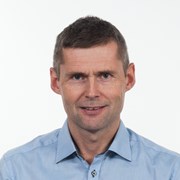The overall goal of MEESO is to quantify the spatio-temporal distributions of biomass, production and ecosystem role of mesopelagic resources and to assess options to sustainably manage and govern their exploitation.
To reach this goal, MEESO will create new knowledge and data on the mesopelagic community, its biodiversity, drivers of its biomass, its role in carbon sequestration, its role in the oceanic ecosystem and its interactions with the epipelagic community which includes several important commercial fish stocks.
Besides applying state of the art experimental and quantitative methods, MEESO will develop and implement new acoustic and trawling technologies necessary for the knowledge and data generation in relation to this largely unknown and remote part of marine ecosystems.
MEESO includes a significant amount of in-kind financing for technology development and scientific surveys. MEESO will apply the new knowledge and data to determine the potential of the mesopelagic biomass to be sustainably exploited for products included in the human food chain.
For the first time combining leading experts in science, engineering, fisheries and governance, MEESO will develop commercial fishing and processing technologies and mapping of contaminant and nutrient contents to explore the basis for a viable fishery and creation of jobs. Mesopelagic organisms represent one of the largest unexploited resource left in the world's oceans, with a recent biomass estimate at 10 billion metric tons. The new tools and technologies, as well as assessment and management roadmaps, developed in MEESO will establish the trade-offs between exploitation, sustainability and viability of the resource, and identify options for its governance.
MEESO is lead by the Institute of Marine Research (IMR) and have 19 European partners, among them SINTEF Ocean which has the responsibility to develop harvesting technology for commercial operations.
Partners
- Havforskningsinstituttet, Norway (coordinator)
- Marine Institute, Ireland
- SINTEF Ocean AS, Norway
- Fundacion Azti - Azti Fundazioa, Spain
- Marine and Freshwater Research Institute, Iceland IS
- Wageningen University, Netherlands
- Danmarks Tekniske Universitet, Denmark
- University of Strathclude, United Kingdom
- International Council for the Exploration of the Sea, Denmark
- Liegruppen Fiskeri AS, Norway
- World Maritime University, Sweden
- Collecte Localisation Satellites SA, France
- IMAR - Instituto Do Mar, Portugal
- NOFIMA AS, Norway
- United Kingdom Research and Innovation, United Kingdom
- Teagasc - Agriculture and Food Development Authority, Ireland
- Pelagia AS, Norway
- Bord Iascaigh Mhara, Ireland
- EUfishmeal, Denmark

